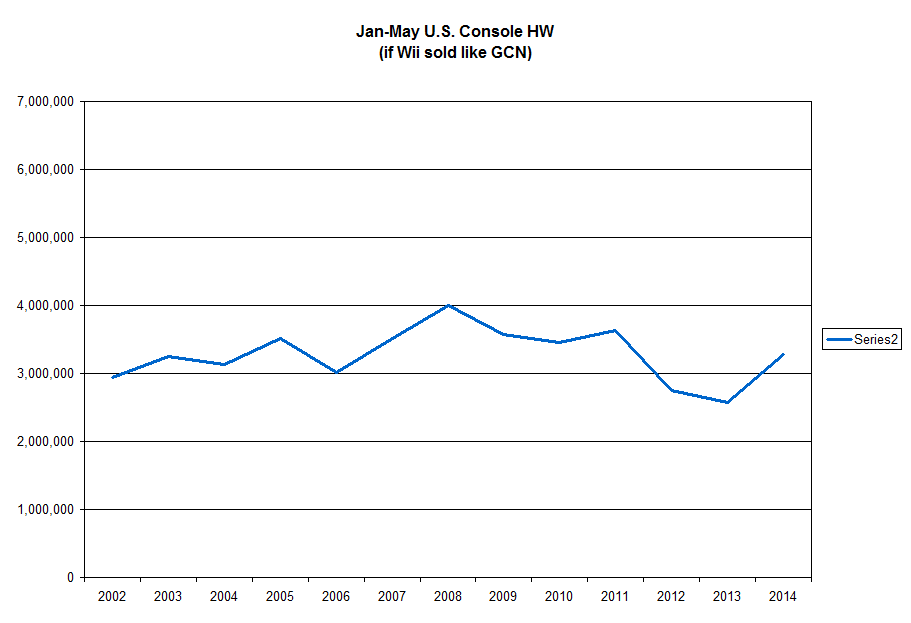You know you still can't remove the wii from the equation but you can normalize that data. Just how exactly and what standard deviation to use is up in the air.
It is hard to say how much you should discount the wii hardware sales, 30% 50%? I am not sure but I bet that some here can apply a good statistical method to normalize the sales data to use it in an overall comparison. You just can't throw out all of the data to make it fit in your argument. Especially when Sony is saying that a percentage if their buyers are converted wii owners
It is hard to say how much you should discount the wii hardware sales, 30% 50%? I am not sure but I bet that some here can apply a good statistical method to normalize the sales data to use it in an overall comparison. You just can't throw out all of the data to make it fit in your argument. Especially when Sony is saying that a percentage if their buyers are converted wii owners

